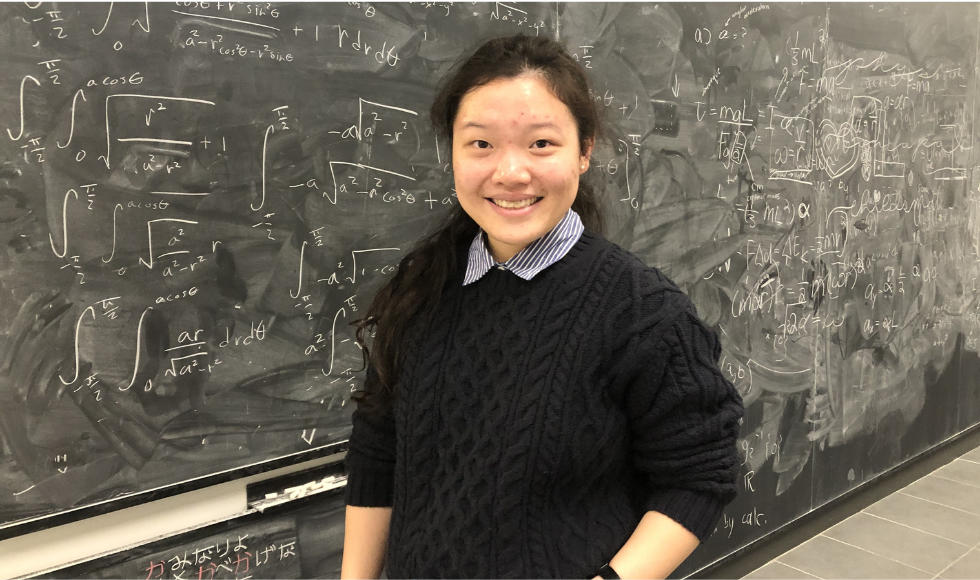Student-led team in Math and Stats builds skills and community for the Class of 2027

McMaster Peer-Run Inclusive Math Experience (MacPRIME) development and instructional team member Difei (Fay) Zheng.
Making sense of linear algebra can be challenging at the best of times.
Now factor in being far from home and learning math in a whole new way.
Difei (Fay) Zheng can relate. Zheng was 14 years old when she left family and friends in China to start high school on her own in Beamsville, Ontario.
Another major change came Zheng’s way when she started her first year at McMaster in the biology and pharmacology co-op program. She added a minor in mathematics.
The way Zheng was taught math through primary, middle and secondary schools no longer applied. Rote learning was out. Critical and creative thinking was in.
“In school we were taught to follow a step-by-step recipe on our own in order to get the right answer. That’s not how we learn math at Mac,” says Zheng.
This new approach was a revelation. Zheng signed on to work as a teaching assistant in the Mathematics & Statistics Department during her second year.
Zheng’s passion for teaching caught the attention of Associate Professor Aaron Childs, who coordinates the department’s teaching assistants. Childs encouraged Zheng to apply to the McMaster Peer-Run Inclusive Math Experience (MacPRIME) Development and Instructional Team.
The team’s supervised by Assistant Professor Caroline Junkins, who based MacPRIME on a similar program she developed and directed while at Harvard University. Both programs are built on a near-peer mentorship model, with senior undergraduate students taking on leadership roles in mentoring incoming first-year students.
MacPRIME, which launched in 2022, aims to shore up gaps in foundational math skills, instill a spirit of collaboration, build community and help smooth the transition to life at Mac.
“At the university level, mathematical problem-solving needs a different skill set than many students have used in high school,” says Junkins. “MacPRIME helps students succeed at making what can be a tricky transition.”
Zheng met with Junkins and was immediately interested in joining the team. “I had a lovely chat with Dr. Junkins,” says Zheng. “One of the priorities was getting more international students involved with MacPRIME. I’m an international student who’s had experience with learning math in different ways.”
Working under Junkins’ supervision, the development and instructional team planned, tested and delivered a four-week virtual bridge program to 47 incoming first-year math and stats students.
“Our team was so excited to see students working together on math challenges and becoming friends outside of the classroom,” says Zheng. “It was also really rewarding to see the shift in their mindsets. In the beginning, students only focused on coming up with the correct answers. But then they started drilling down to the foundation of math and coming up with new ways of solving an ill-defined problem where there isn’t always one correct answer.”
Junkins credits the success of the 2023 edition of MacPRIME to Zheng and the other two student members on the development and instructional team – Yasmin Yaacoub and Shuoyang Wang.
“Difei, Yasmin and Shuoyang brought tremendous enthusiasm, dedication and thoughtfulness to the program,” says Junkins. “Since they’re undergrad students themselves, they remember exactly what it felt like to be a first-year student. They’re really passionate about helping new students find community at Mac and build a productive relationship with math. The team came up with all of the really good ideas. My role was to help them turn their ideas into reality.”
Zheng and the team will now work with Junkins during the winter term to evaluate the 2023 program and identify priorities for future iterations of MacPRIME.
Learn more about the MacPRIME program here.


